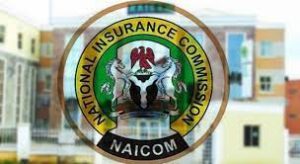Joy Agwunobi
The National Insurance Commission (NAICOM) has reaffirmed its resolve to make non-compliance with insurance regulations increasingly untenable, emphasizing that adherence to statutory obligations is no longer optional but fundamental to restoring trust and credibility within Nigeria’s insurance ecosystem.
Speaking at a recent industry conference, Olusegun Omosehin, the commissioner for insurance and chief executive officer of NAICOM, reiterated the Commission’s regulatory direction. He noted that compliance is now the bedrock upon which the insurance industry must build its future.
“Let me be clear: the enforcement of compulsory insurance is not merely a regulatory mandate—it is a social imperative.Today, more Nigerians are covered. More properties are insured. More lives are protected. This is a trend we must not only sustain but amplify through digital verification systems, public awareness campaigns, and nationwide field monitoring,”Omosehin stated.
Omosehin highlighted the proactive steps NAICOM has taken over the past year, describing the Commission’s approach as both visionary and transformational. Through extensive engagement with key stakeholders—including underwriters, brokers, agents, policyholders, and policymakers, noting that NAICOM has promoted a culture of accountability and collective responsibility.
“Our collaboration with entities such as the Federal Road Safety Corps (FRSC), Nigerian Police Force (NPF), and the Federal Fire Service has enhanced enforcement mechanisms for compulsory insurance policies,” he said. “This includes motor third-party insurance, public building insurance, and group life insurance. These efforts have significantly improved compliance and expanded the number of Nigerians under formal insurance coverage.”
To consolidate progress and drive the next phase of growth, Omosehin outlined three strategic imperatives for the industry:
Innovate for inclusion
He stressed the importance of leveraging technology to reach marginalized and underserved segments, particularly in rural areas, the informal sector, and among youth populations. “Microinsurance, digital platforms, and inclusive product design must define our new frontier,” he said.Strengthen regulatory and data infrastructure
Omosehin emphasised the need for robust infrastructure that supports transparency, data-driven policymaking, and consumer protection. “As we push for deeper market penetration, our systems must evolve to ensure integrity and accountability,” he added.Promote an insurance culture
Beyond increasing policy numbers, he called for a societal shift in perception, positioning insurance as a vital component of personal and national security. “We must educate and engage the public, showing them that insurance is not a burden, but a pathway to financial stability and a reliable safety net.”Addressing the broader role of insurance in national development, Omosehin noted that the industry is operating in an increasingly complex environment marked by global instability, climate change, technological disruptions, and volatile economic indicators.
“Despite these uncertainties, one constant remains: insurance is indispensable in building national resilience,” he said. He urged all players in the insurance value chain to align with NAICOM’s vision for a resilient, inclusive, and innovative industry.
“The journey toward resilience and growth in the face of uncertainty is a collective one. With NAICOM setting the pace and the unwavering support of all stakeholders, I am confident that Nigeria’s insurance sector will not only weather the storm but emerge stronger and more inclusive,”Omosehin stated.
“Let us work together to build a future where every Nigerian, regardless of their status or location, can confidently say, ‘I am covered,”he added.









